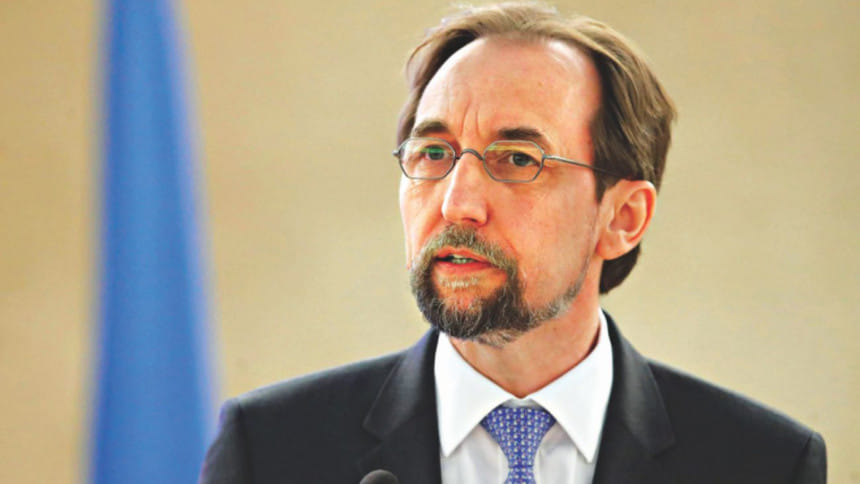'THE MOST PROLIFIC SLAUGHTERHOUSES'

The UN rights chief has slammed a lack of international action to rein in the carnage in conflict zones including Syria and Myanmar, and described the places as "some of the most prolific slaughterhouses of humans."
“Eastern Ghouta, the other besieged areas in Syria; Ituri and the Kasais in the DRC; Taiz in Yemen; Burundi; Northern Rakhine in Myanmar have become some of the most prolific slaughterhouses of humans in recent times, because not enough was done, early and collectively, to prevent the rising horrors,” Zeid Ra'ad al-Hussein said on Monday.
Addressing the 37th session of UN Human Rights Council in Geneva, he said his office repeatedly brought to the attention of the global community the widespread violations of human rights.
He lamented, “Time and again, there has been minimal action. And given this is my last address as high commissioner at the opening of a March session, I wish to be blunt.”
Zeid also mentioned the atrocities against Rohingyas in Rakhine State of Myanmar and questioned why hardly any action is being taken.
“When journalists are jailed in huge numbers in Turkey, and the Rohingya are dehumanised, deprived and slaughtered in their homes -- with all these examples bedevilling us, why are we doing so little to stop them, even though we should know how dangerous all of this is?”
In the previous session, he lashed out at the treatment of Rohingyas, saying the situation in Myanmar seemed “a textbook example of ethnic cleansing.”
A brutal military campaign has led to around 700,000 Myanmar nationals fleeing to Bangladesh since last August, as security forces and local militia reportedly burn villages and shoot civilians.
“I call on the government to end its current cruel military operation, with accountability for all violations that have occurred and to reverse the pattern of severe and widespread discrimination against the Rohingya population,” Zeid, the UN high commissioner for human rights, told that 36th session, held in last September.
He also forcefully chastised the Security Council throughout the Syrian conflict for failing to refer the case to the International Criminal Court in The Hague.
On Monday, he blasted veto-wielding members for the council's intransigence on Syria and other conflicts, saying they bore "responsibility for the continuation of so much pain."
Zeid, however, hailed France and Britain for working towards reforming the ways vetoes are used, but insisted that "it is time, for the love of mercy, that China, Russia and the United States... end the pernicious use of the veto."
'OPPRESSION FASHIONABLE'
Zeid, who has said he will be stepping down at the end of his term later this year, also warned of a general deterioration in the respect for rights around the world.
"Today, oppression is fashionable again. The security state is back and fundamental freedoms are in retreat in every region of the world. Shame is also in retreat," he said.
He highlighted in particular "xenophobes and racists in Europe", who he said were "casting off any sense of embarrassment".
[With inputs from AFP]

 For all latest news, follow The Daily Star's Google News channel.
For all latest news, follow The Daily Star's Google News channel. 




Comments